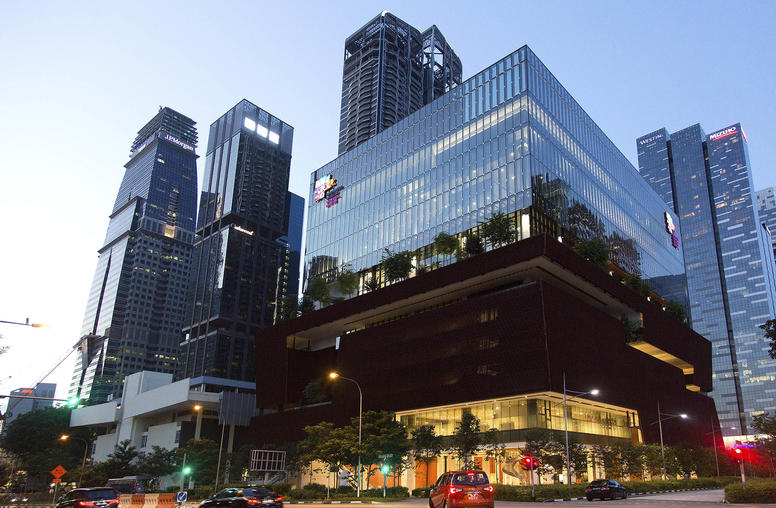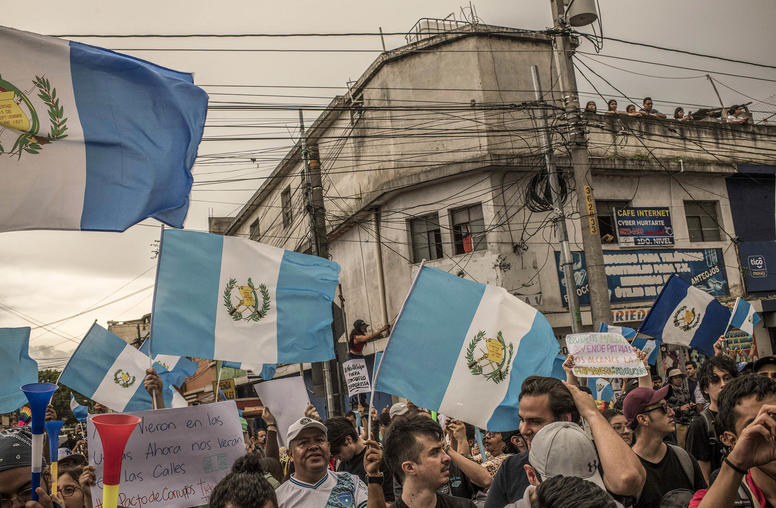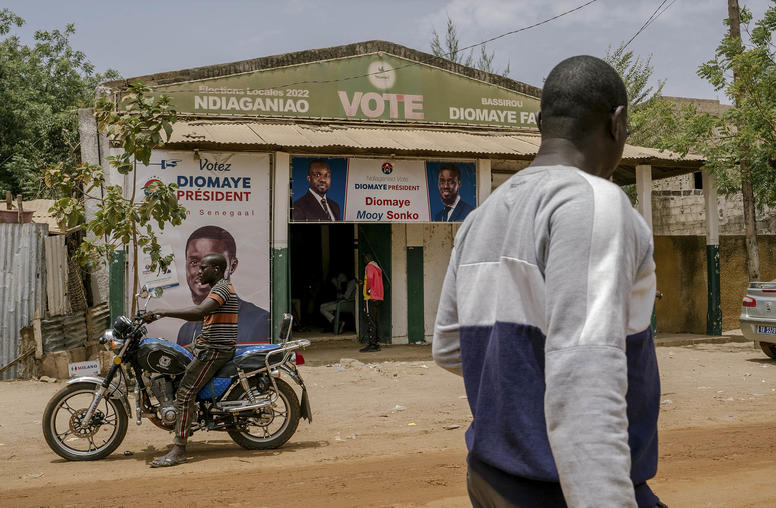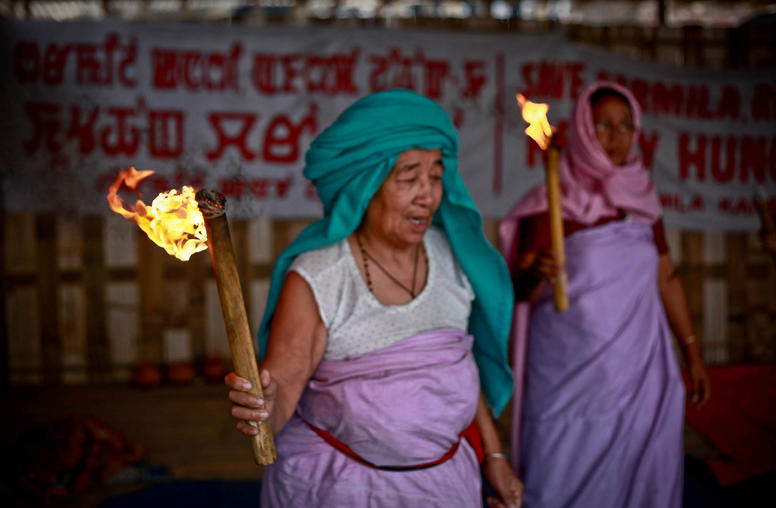Publications
Articles, publications, books, tools and multimedia features from the U.S. Institute of Peace provide the latest news, analysis, research findings, practitioner guides and reports, all related to the conflict zones and issues that are at the center of the Institute’s work to prevent and reduce violent conflict.
Question And Answer
Amid a Changing Global Order, NATO Looks East

Increasing Information Access for the North Korean People
In recent years, North Korea has become more repressive, more impoverished and more allergic to the outside world. Already turning inward after the failure of diplomatic efforts in 2019, the North Korean government isolated itself further amid the global COVID-19 pandemic. North Korea has learned to operate, and Kim Jong Un has learned to rule, with greater levels of self-isolation than aggressive international sanctions regimes could ever hope to impose. Given North Korea’s current mode of rejecting even humanitarian assistance and its recent turn toward Russia, the chances for diplomatic breakthroughs with Pyongyang look like a wishful long-term hope at best.

To Help Stabilize West Africa, Bolster a Key Partner: Nigeria
Continued violence in West Africa is sharpening America’s critical challenge to reduce extremism and violence, particularly in the Sahel. Violent deaths in three western Sahel nations surged by 38% last year and Niger’s coup has complicated the U.S. military role in the region. The violence is likely to spread further this year into coastal West Africa, a region five times more populous, with commensurately greater security implications for Africa, the United States and the world. A vital partner in stabilizing both regions is Nigeria, and U.S. institutions should consider several priorities for helping it do so.

Why Peace Games? Insights from East Asia
These days, Washington seems to be awash in war games, especially China-related ones. Yet, despite the dangers posed by a great power conflict, there are shockingly few peace games happening inside the Beltway outside the auspices of our home institution, the U.S. Institute of Peace.

Myanmar’s Collapsing Military Creates a Crisis on China’s Border
Operation 1027 — an offensive launched in October 2023 by an alliance of three ethnic armed organizations (EAOs) against the military junta in Myanmar — has disrupted hundreds of forced labor scam syndicates operating under the protection of Myanmar’s army, dented the army’s image of invincibility and decimated the lucrative China-Myanmar border trade. A second operation launched on March 7 by another EAO in Kachin State has compounded China’s economic woes by adding to the impact on trade.

A Small State Heavyweight? How Singapore Handles U.S.-China Rivalry
Alice Ba pertinently observes in her introductory essay to this series that Southeast Asia has become a key arena in the ongoing U.S.-China rivalry; regional countries are under growing pressure to choose between the two powers. For Singapore, this competition has provoked a debate on the extent of agency in the conduct of the city-state’s foreign policy. Two perspectives have emerged in this regard.

Sometimes the Good Guys Win: Guatemala’s Shocking 2023 Election
Guatemala’s 2023 elections were a turning point for the country. Despite a playing field tilted to favor the governing elite, voters elected Bernardo Arévalo, whose Semilla (“Seed”) Movement promised to break the country’s cycles of corruption, restoring democracy and the rule of law. Success was — and remains — far from inevitable. The kleptocracy pushed back hard, using their control of the public prosecutors’ office to open spurious investigations and pursue unsupported claims of electoral fraud.

Senegal just saved its democracy. That helps all West Africa.
Senegal’s dramatic transfer of presidential power this week highlights that West Africa, routinely seen as a zone of democratic erosion and failure, includes an arc of resilient coastal democracies — from Senegal to Liberia, Ghana and Nigeria. The Senegalese people’s resolute reversal of last month’s constitutional crisis shows that U.S. and international efforts to counter violent extremism and military coups can reinforce a potent West African democratic constituency. Vital next steps include these: supporting Senegal’s democratic forces in shifting from “campaign mode” to inclusive governance; promoting economic investment to bolster youth employment and rule-of-law reforms; and energizing a West African democratic alliance against extremism and coups.

Indigenous Pathways to Peace
Many of the world’s Indigenous peoples live in unstable areas, struggling to survive as conflicts, transnational organized criminal networks and extractive projects upend their lives and livelihoods. Unfortunately, peace processes in these contexts are often negotiated at high political levels without the inclusion of Indigenous peoples. This can undermine the chances for success, as Indigenous peoples are a crucial population in some of the world's longest-running conflicts. But even further, excluding Indigenous people means overlooking how Indigenous traditions, rituals, and religious and political practices can help advance peace and resolve deadly conflict.

How a Fractured Myanmar is Navigating U.S.-China Rivalry
As the rivalry between the United States and China intensifies, Southeast Asian countries have been forced to navigate this growing power competition. The challenge has proven formidable even for those with strong governance and stability. For Myanmar — where a civil conflict between the ruling military junta and a loose alliance of resistance groups recently entered its fourth year — developing a cohesive approach to navigating U.S.-China competition might seem unattainable and unimportant in the current moment.

It’s Time to Resolve the Korean War
The greatest challenge to peaceful coexistence between North Korea and the United States is the technical state of war between the two countries. The United States and the Soviet Union may have been at ideological loggerheads, used proxies in regional conflicts and come close to direct superpower blows — but they were not in a state of war. Resolution of the Korean War should be set as a stated U.S. policy objective. This is a necessary Step Zero on the road to peaceful coexistence with North Korea today and could reduce the risk of deliberate or accidental conflict, nuclear or otherwise.